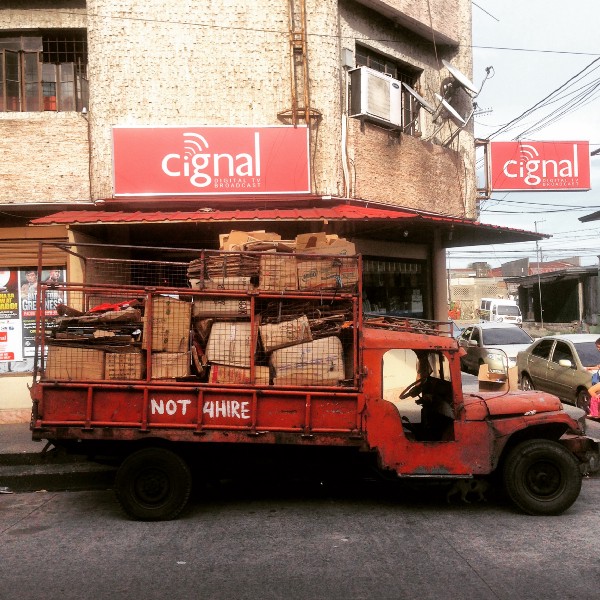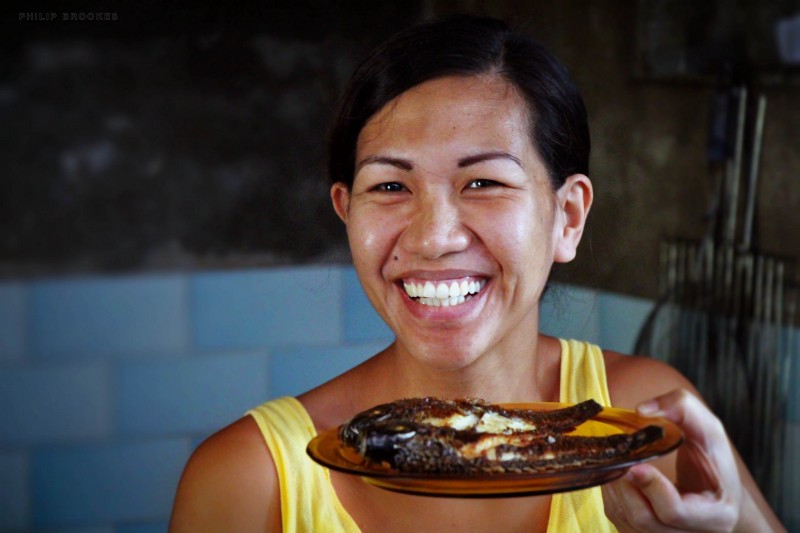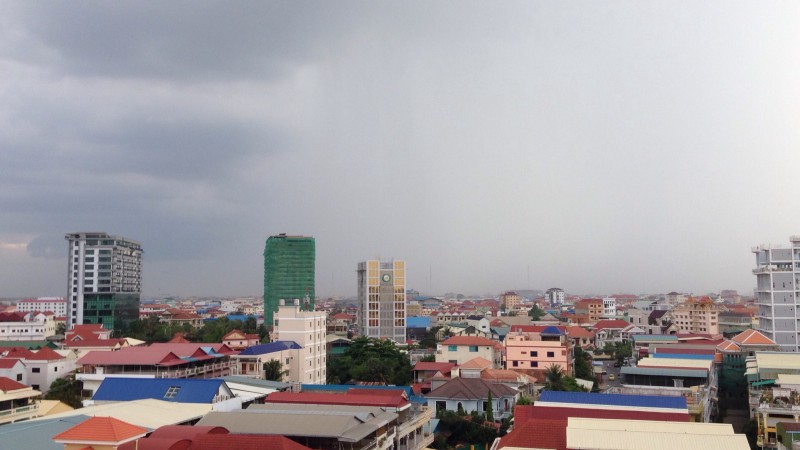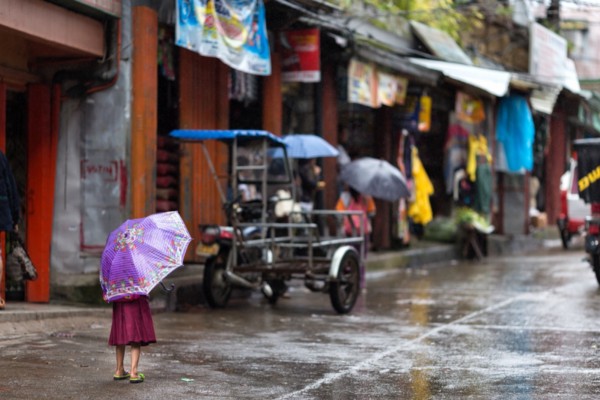I knew I would love living in Asia. My job as Business Director of an Innovation Lab in Cambodia was a dream come true, and I had lived the majority of my childhood in Asia so developing countries were nothing new to me. I’ve had a long-running love affair with Philippines, so I wasn’t expecting any real culture shock — more a re-awakening of a nostalgic past supplemented with new flavours, sounds, and experiences that I welcomed as part and parcel of living in South East Asia.

And love it I did. There was so much to be grateful for, a perpetual tumult of amazing new experiences. But there were still some rude awakenings that I’m only just now learning how to accommodate.
Looking back on the adjustments I’ve found most difficult, I realise that most (but not all) of them came from the least expected quarters.
Everyone will have a different experience, and of course the location you’re moving to is also very significant, but here’s my personal list of “You Have to Learn How to Deal With This” challenges:
1. Food is a much bigger deal than you think
I’ve always considered myself a pretty middle-of-the-road eater. I’m not super-adventurous and I do have a “won’t eat” list. But I’ve met many who are much fussier than me, and anywhere I go I always find something on the menu I’ll enjoy.
When I arrived in Phnom Penh, I noticed that there was a great divide between how the locals ate, and what the expats were privileged enough to treat themselves with.
The average local-style eatery generally has dubious hygiene standards and includes main fare including red ants and frogs. The markets do okay with fruit and vegetables, but the meat and fish come in a form which I didn’t know quite what to do with!
There’s a huge expat population in Phnom Penh and very relaxed business ownership laws in Cambodia, so there are an astonishing number of foreigner-owned and run cafes, restaurants and coffee shops. No matter what your food preference, you’ll find it in Phnom Penh — as long as you’re willing to pay the price.
For me, that included finding the two or three supermarkets that stocked suitable meat, snacks and drinks. I was able to eat out or at home and enjoy all my favourite foods. And in order to satiate my coffee cravings, I became a regular at Joma Bakery Cafe and Brown Coffee Company.
With a little bit of effort to find the food I wanted, I was happy.
Later on, when I moved to Philippines in 2015, I ended up in my partner’s home city a few hours away from Manila. With a population of about 400,000 it’s not what you’d call a ‘small town’, but it certainly lacks the culinary variety you tend to find in capital cities like Phnom Penh or Manila.
I very quickly learned that the average Filipino is not concerned about the same ‘quality’ attributes of food that I am. In fact, some of them prefer cold rice, eating the head and eyes of a fish, and plenty of fat and bone in their meat.

I’d like to say that my happiness in life isn’t dependent on food. But I’m not sure that’s always 100% true.
In order to maintain my sanity, I’ve had to work extra hard to find some ‘basics’ that keep me in a good mental position.
I hunted high and low for the best source of good quality vegetables. I splurge occasionally on the best meat I can find. I regularly cook different meals to what the rest of the family eat (and I have a very patient partner who helps out in this regard). I’ve tracked down half a dozen restaurants where I can purchase a passable non-Filipino meal. I bring Vegemite and other goodies back from Australia everytime I return. I also try to bundle a few reasons together for a trip up to Manila (where there’s a much more cosmopolitan selection of restaurants and cafes) and always ensure I treat myself with a dish or three that I really enjoy.
Never underestimate how much a healthy, tasty diet affects your mental state. If you’re moving to a foreign country, particularly one that has significant cultural and economic differences, it helps to be aware of this in advance and give yourself permission to be a little ‘extravagant’ if that’s what it takes to stay happy and healthy.
2. Noise can drive you crazy
Phnom Penh is a rapidly growing city. There is construction everywhere. I recall sitting on the roof of my apartment building one day and counting 36 buildings that had green shrouds draped around them (the indicator of construction in progress).

Construction in many Asian countries is very different to what I had experienced in Australia. It’s a very manual process which takes a lot longer than Australian construction, and there’s an awful lot of clanging and hammering and banging.
Another feature of the audioscape in Phnom Penh is the frequent Buddhist ceremonies. Weddings can be loud and extended events, but funerals and 7th, 50th, and 100th day death remembrance ceremonies are the ones most indelibly burned into my brain. The well-to-do families block off their entire street with one or more large marquees, set up seating and tables for all their guests, and have amplified music and Buddhist chants that dominate the neighbourhood throughout they daylight hours, often for several days.
When I got to Philippines, the construction and ceremonial sounds were replaced by loud traffic. In many parts of Philippines small motorcycles and tricycles are the predominant form of transport, and either for the cool factor or to eke 3% more power out of them, most have modified or removed mufflers — consequently, these little 100cc motorbikes are insanely loud, and their carefree riders are happy to hurtle down our street at full acceleration (and decibels) any time of day or night.
Until you’ve lived in the midst of constant noise, you don’t fully appreciate peaceful calm (and noise control regulations)!
3. Footpaths/sidewalks are an incredible invention!
In developed countries, it’s normal that sidewalks/footpaths are an integral part of the town planning and road construction. Rather than being the individual responsibility of each separate land owner, they are rolled out alongside any urban street in a consistent manner.
When you arrive in South East Asia, you discover that this practice is rarely adopted there. Furthermore, provision for street parking (or off-street parking for that matter) is very much an afterthought.
In Phnom Penh, the difficulty for a pedestrian to navigate down the ‘footpath’ is so severe that very few people do — most would rather get on their ‘moto’ even if it’s only to traverse one hundred or so metres.
I became most acutely aware of this when I wanted to resume running. In Australia, I could happily go for a jog around my neighbourhood and say out of the path of the traffic most of the time. In Cambodia, and later in Philippines as well, this was not feasible. I essentially had to run down the street, staying alert and aware of all the traffic around me.
With babies in a pram or stroller you also become painfully aware how ineffective the footpaths are in Asia.
This may not sound like such a big deal but, trust me, it is! Every attempt to walk or run down a street is a much bigger (and more frustrating) deal, and this can really wear you down.
4. Finding things is so much easier with modern technology
When you live in a developed country like Australia, US or UK you can locate pretty much any service you want with a quick Google search. You can find restaurant recommendations on Yelp and Foursquare. You can find businesses via the online Yellow Pages. Virtually everything is identified on Google Maps. And you can type in an address and get instant navigation instructions.
But when you move to developing countries, many of them lack the technological infrastructure — and even the street numbers!

Fastfood companies offer food delivery, but you frequently have to guide them to your house by way of the nearest landmarks and perhaps the name of someone in the neighbourhood that they may be familiar with.
In Philippines, Facebook is the predominant means of sharing and finding any information. Businesses rarely have websites, and it’s next to impossible to search for them on Google.
When we needed to consult a medical specialist, we couldn’t find doctors online. In fact, we struggled to even find contact details for the hospitals in our city. Once we got the phone number for the reception at the hospital, they weren’t able to provide us with the contact number within their own hospital for the specialist we wanted to consult — we literally had to take a trip to the hospital and wait in the waiting room until his personal administrative assistant came out and asked us what we were there for.
In Cambodia the problem is further exacerbated for foreigners because a lot of the information is available only in Khmer.
Apps like Foursquare and TripAdvisor do provide a limited amount of information about entertainment and dining options, however it can still be pretty sparse and out of date.
Real estate/property in developing countries is another industry which still relies heavily on word-of-mouth and ‘For Rent’ signs out the front of the place.
Unlike Australia, where most rental properties are managed by a professional Property Manager and you can search for everything on realestate.com.au, most Asian rentals are managed directly by their owner. Other ‘agents’ may try to spruik the same property in exchange for a one-off payment when they successfully find a tenant, but it’s nothing like the rental market in Australia — even thirty years ago. Before the digital age in Australia you used to peruse the rental lists at each real estate agent, and there were windows full of nicely photographed listings — none of this exists in developing countries.
At present in the city we live in we are trying to find a comfortable, family-sized house for rent, and tradesmen to do a variety of tasks. I can’t find any of these things online and it could literally take me month or years before I find what I’m looking for!
5. Individual freedoms may be severely curtailed in certain cultures
When I first moved to Cambodia, I initially felt ‘imprisoned’ in my own apartment. I couldn’t come or go without someone noticing. There was always a person monitoring the gates, everything got locked up after dark, and I became acutely aware that every one of my actions had a ripple affect.
‘Civil liberties’ in Cambodia are virtually non-existent. Justice and due process are rarely seen. People who speak out too strongly against the Government can be jailed on concocted charges, or just mysteriously disappear. Shootings are a fairly common occurrence and the offenders are rarely brought to justice.
In Philippines the legal restrictions are not as severe, and yet beneath the surface you can still sense the dark undercurrent of corruption and exploitation. People frequently warn you not to rub the wrong people up the wrong way. And don’t complain too much.
Fairness, justice, excellence, quality, continual improvement, competitiveness and compassion all take a back seat to ‘harmony’ (a nice way of saying — don’t mess with the status quo).
Employees (and those who can’t get ‘employment’ but take a role as a ‘contractor’ without the benefits and protections afforded to an employee) take crappy jobs and don’t challenge their exploitation. Consumers don’t make a fuss about poor service or products. Constituents don’t believe that they’re entitled to hold their councillors and senators accountable.
And laws which appear to protect certain rights are never enforced. Legal battles can drag on for over a decade, and the poor almost always lose.
Although at times I’ve heard Australia described as a nanny state, very rarely do we ever have any significant limitations on what we think, believe, or say. We have freedom of thought, speech and actions. And the regulations we are asked to comply with are generally logical and lead to an improvement the quality of life for everyone living there.
Once you’ve lived in places like Philippines or Cambodia, you start to appreciate the freedoms we do have in most developed countries.

